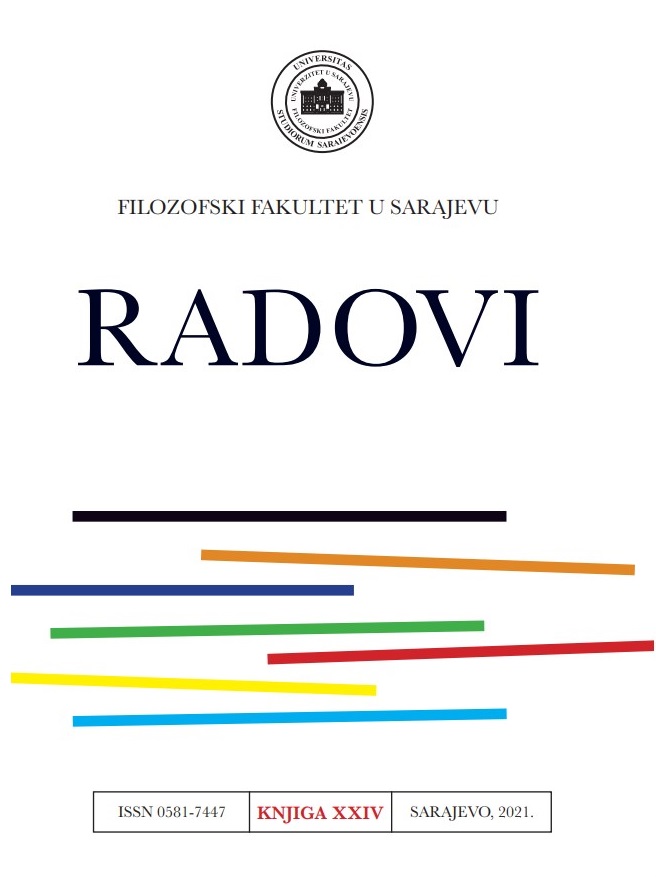Jezička anketa Zemaljskog muzeja u Sarajevu iz 1897. godine
The 1897 Linguistic Survey by the National Museum in Sarajevo
Author(s): Senahid HalilovićSubject(s): Language studies, Language and Literature Studies, Applied Linguistics
Published by: Filozofski fakultet Univerziteta u Sarajevu
Keywords: survey; dialectology; dialect atlases; isogloss; linguistic geography; variations of spoken language; questionnaire;
Summary/Abstract: The present paper analyses the first linguo-geographical research endeavour in Bosnia and Herzegovina which was conducted during the period when the first linguistic atlases in Europe were being compiled. The research was based on the survey conducted in 1897 by the National Museum in Sarajevo that collected data about Bosnian-Herzegovinian dialects by means of Rešetar’s Questions about the spoken language of the common people, the first dialect research-oriented questionnaire in the South Slavic region. The collected corpus on dialects was not accessible to researchers until the end of the 19th century. After this period, it was forgotten and, therefore, did not have a major impact on the development of Bosnian-Herzegovinian dialectology. It was only at the beginning of the 21st century that researchers started publishing books and research papers in which the material from individual questionnaires was used although the analysis of the whole collection as such remains incomplete until present-day. Nevertheless, data from 226 questionnaires allow for a reconstruction of the dialect map in Bosnia and Herzegovina by the end of the 19th century and a possibility to reconstruct the presence of certain linguistic phenomena. Notes of the researchers containing various pieces of information about the features of the spoken language examined and various observations on their variations carry a fundamental importance for the historical dialectology and language history. Due to unfavourable political circumstances, the survey of the National Museum did not result in an atlas of dialects and, therefore, was not a turning point from which Bosnian-Herzegovinian or Slavic linguistic geography studies would emerge. Still, it has preserved its value for the cultural history of Bosnia and Herzegovina as the first organised endeavour into researching spoken language of the common people in the Slavic South.
Journal: Radovi Filozofskog fakulteta u Sarajevu
- Issue Year: 24/2021
- Issue No: 1
- Page Range: 15-29
- Page Count: 15
- Language: Bosnian

